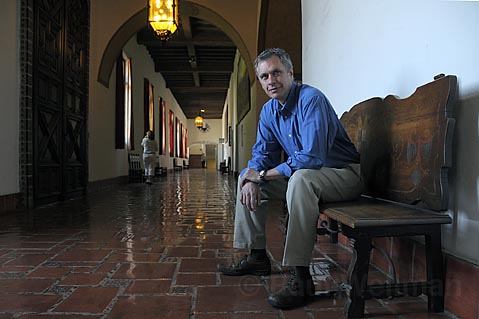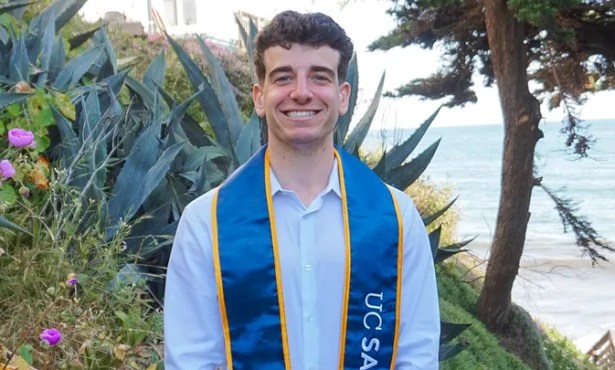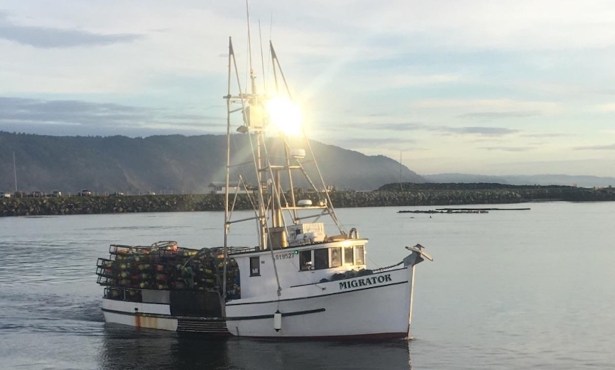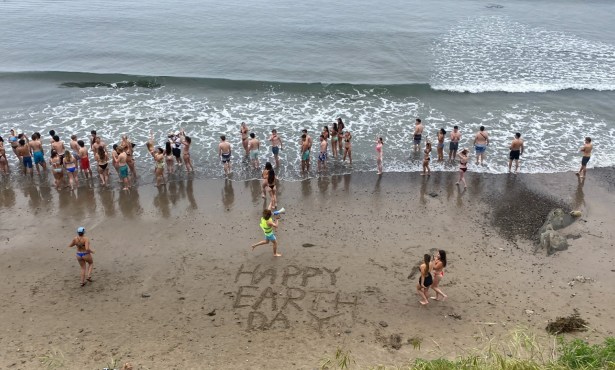Guns, Violence, and Jesse James Hollywood
Alpha Dog Producer to Address Coalition Against Gun Violence

A lawyer and author, Michael Mehas provides a unique perspective on the Jesse James Hollywood Supreme Court case as well as life in general. While living in Ventura in 2003, he was approached by director Nick Cassavetes about working on Alpha Dog, the film based on the death of 15-year-old Nick Markowitz in Santa Barbara. Since then, he’s been deeply occupied with the case, and his involvement is at the center of the Supreme Court case involving Santa Barbara Senior Deputy District Attorney Ron Zonen.
Do you practice law? I have practiced law; I practiced criminal defense. I passed the bar in 1988 in November and shortly after had my first jury trial. It was in the Riverside County Public Defender’s office. That was interesting because when I started working out there the public defender was a former Santa Barbara prosecutor named Joseph Taylor, and he had worked alongside a gentleman named George Eskin. : I used to clerk for him and his wife, Hannah-Beth Jackson. They were wonderful.
How do you know Nick Cassavetes? I grew up with Nick in the Hollywood Hills. : We played basketball together and ended up, at 14 years old, playing on the California state championship team together. As a kid growing up, I would go over to his house, and [I met] his dad, a guy named John Cassavetes, the father of independent filmmaking.
We had a very trying childhood together; we were always on the edge of trouble with drugs and alcohol and fighting. That was part of our lives growing up. That was what our environment was, which I think tied into why Nick came back to me and [asked me to] help him with this project. I think he saw this was a story about kids, about relationships. These are kids who played baseball together; they played basketball together. So we got involved in it.
When Jesse James Hollywood disappeared, he was the youngest person ever to be on the FBI’s most wanted list. He was a myth, a vapor of air, and so there was a very interesting story that needed to be told and explored. This story really resonated with a lot of people. It raised a lot of questions: How could this happen? How could these kids who grew up together lead up to this? These kids who were best friends, and then it leads to this. There were a lot of incredible parallels for Nick Cassavetes and myself.
How did you meet Ron Zonen? The first day we came up here and met Ron Zonen. Hollywood was missing. I think he felt it was his legacy to finish this case. He wanted to try to get Jesse James Hollywood before he retired. So when Nick had contacted him with possibly helping him with the movie, he was all for it because, at that point, he figured it was a great way to gain global exposure through a major motion picture. Nick was the point man to gather information and bring the story together, and that’s how it started.
How many of the people involved did you interview? Personally, I didn’t talk to any of the defendants. I didn’t need to. I had all their information. I knew the defendants had appeals going on [and] that they had criminal defense attorneys who weren’t going to let them say anything. : My goal was to try to put together a truthful version of what really happened to try and get it out in the public, because there was no truthful version out there. These guys were demonized in the five years that Hollywood was missing. A false scenario was created by law enforcement officials, including the prosecutors’ office through the mass media. This was depicted even last week. It was still argued by the California Attorney General to the state Supreme Court as a revenge killing for a drug debt. This is not what this was about.
When I started coming to Zonen, he gave us transcripts [and various other official documents]. After Hollywood was caught, his lawyer Jim Blatt, a dynamite attorney, realized all the information that I’d gotten, and he started trying to get it from me. I knew there were some important matters in this situation that he probably didn’t know about. I certainly wanted to let him know because I realized I had information that could help save Hollywood’s life.
I told Blatt that I would like to help him and I needed to talk to Zonen first. I called up Zonen and told him about Blatt, and Zonen was very angry with me. I felt as though I had somehow violated his confidence. : [Zonen] wanted to bring the death penalty to Hollywood. But [I felt like] these are human beings who deserve a chance, who deserve life, who deserve respect, who deserve compassion, and that’s kind of where I come from.
He also told me he was potentially facing criminal prosecution because in giving me the stuff and working with me on the movie and my book, he may have violated the law. So, on the one hand, if I cooperate with Blatt and testify, I could play a big part in saving a life, but my testimony could also be used to bring criminal charges against Zonen and the office. So I refused to testify.
What are you going to speak about this weekend? Gun usage. : If we don’t have family and guns in [cases like the Markowitz] situation, nobody dies. Guns were a rampant thing, from the victim’s family, to Hollywood’s family, to all the defendants. : So the coalition is trying to eliminate guns from families, to eliminate the possibility of kids getting hurt or parents hurting kids or kids hurting themselves or kids hurting other kids, like we just had in Oxnard in February. My perspective is if we put consciousness into guns like we put consciousness in hatred and anger, we create that reality around us. So if you eliminate guns from our consciousness, you put that reality in existence in our household. Let’s replace guns : with compassion and love and communication and consciousness.
My message is to parents: Let’s get in touch with our kids and make sure they’re thinking about the right things, that they’re not thinking about hurting someone else, but that they’re thinking about bringing love and compassion to the people around them.
4•1•1
Michael Mehas will be the introductory speaker at the annual luncheon for the Coalition Against Gun Violence on Saturday, April 19, at 11:30 a.m. at the Hotel Mar Monte’s Cabrillo Room (1111 E. Cabrillo Blvd.). The luncheon costs $55. For additional information, please call 564-0466.



